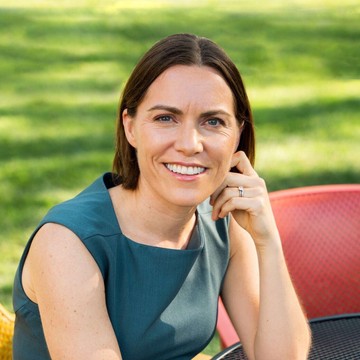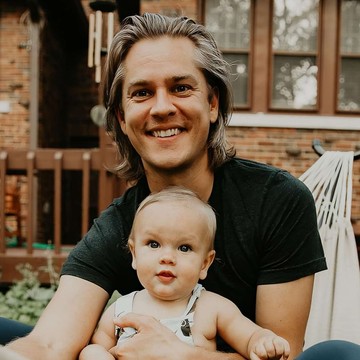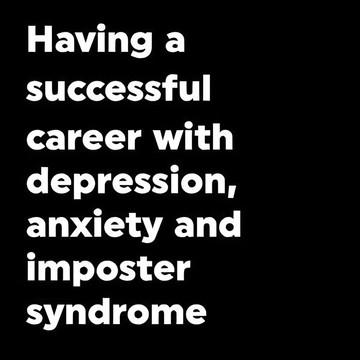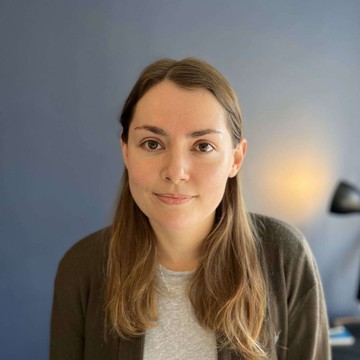

80,000 Hours Podcast
Rob, Luisa, and the 80000 Hours team
Unusually in-depth conversations about the world's most pressing problems and what you can do to solve them.
Subscribe by searching for '80000 Hours' wherever you get podcasts.
Hosted by Rob Wiblin and Luisa Rodriguez.
Subscribe by searching for '80000 Hours' wherever you get podcasts.
Hosted by Rob Wiblin and Luisa Rodriguez.
Episodes
Mentioned books

22 snips
Feb 1, 2024 • 2h 23min
#178 – Emily Oster on what the evidence actually says about pregnancy and parenting
Emily Oster, a Brown University economist and author of evidence-based books on pregnancy and early childhood, discusses the complexities of parenting decisions. She debunks common myths around pregnancy, like the caffeine debate, and advocates for personalized mental health care. Oster emphasizes the role of doulas in enhancing childbirth experiences and explores the societal pressures surrounding breastfeeding. She advises new parents on balancing career and family life, stressing that stable caregiving matters more than adhering to conventional parenting wisdom.

28 snips
Jan 24, 2024 • 2h 47min
#177 – Nathan Labenz on recent AI breakthroughs and navigating the growing rift between AI safety and accelerationist camps
In this insightful discussion, Nathan Labenz, an AI entrepreneur and the host of The Cognitive Revolution Podcast, delves into AI breakthroughs and the divides within the community regarding safety and rapid progress. He analyzes the current capabilities of AI, its revolutionary impact on fields like medicine and self-driving cars, and the challenges of effective communication in polarized debates. Labenz also highlights the ethical implications of AI in warfare and policing, all while providing strategies for listeners to keep up with the fast-evolving AI landscape.

9 snips
Jan 12, 2024 • 2h 59min
#90 Classic episode – Ajeya Cotra on worldview diversification and how big the future could be
Ajeya Cotra, a senior research analyst at Open Philanthropy, dives into the philosophical and practical implications of charitable giving. She presents a thought-provoking thought experiment on anthropic reasoning that challenges our understanding of existence. The discussion also emphasizes the importance of diverse worldviews in philanthropy, exploring themes like longtermism versus near-termism and the complexities of AI development. Ajeya sheds light on the moral dilemmas surrounding resource allocation and the future of humanity, particularly in the context of space colonization.

9 snips
Jan 8, 2024 • 3h 51min
#112 Classic episode – Carl Shulman on the common-sense case for existential risk work and its practical implications
Carl Shulman, a research associate at Oxford's Future of Humanity Institute, dives into existential risks and the case for prioritizing their mitigation. He argues that the cost of extinction is staggering and should motivate urgent action. Shulman highlights how the US government values lives significantly, positioning risk reduction as a practical endeavor. He explores lessons from recent crises, like COVID-19, and encourages innovation in handling potential threats, ensuring we balance serious discussions with lighter moments in life.

37 snips
Jan 4, 2024 • 3h 22min
#111 Classic episode – Mushtaq Khan on using institutional economics to predict effective government reforms
Mushtaq Khan, Professor of economics at SOAS University of London and anti-corruption advocate, delves into the complexities of governance in developing nations. He examines the entrenched corruption in Nigeria's Niger Delta and how community dynamics hinder effective reforms. Khan explains the importance of understanding local power structures and the role of organizational capabilities in driving economic growth. He contrasts successful industrial policies in South Korea with the struggles faced in India and highlights the significance of tailored strategies to combat corruption and promote development.

29 snips
Dec 31, 2023 • 1h 54min
2023 Mega-highlights Extravaganza
Highlights from each episode of the podcast show in 2023 include topics like punctuated equilibrium, fast AI takeoff, political action vs lifestyle changes, environmental impact, rational irrationality of voters, AI extinction risks, elephants' resistance to cancer, civilization lifespan, and neural interface hacking. These topics cover a wide range of interesting subjects and can be found in the 80K After Hours highlights reels.

18 snips
Dec 27, 2023 • 2h 52min
#100 Classic episode – Having a successful career with depression, anxiety, and imposter syndrome
In a candid discussion, Howie opens up about his personal battles with depression, anxiety, and imposter syndrome in both academic and professional contexts. He shares the realities of losing a job he loved and his journey towards recovery. Rather than focusing on conventional advice, he emphasizes practical strategies for managing mental health challenges. Listeners gain insight into navigating careers amidst mental illness, the importance of seeking support, and the power of open conversations about mental health.

61 snips
Dec 22, 2023 • 3h 47min
#176 – Nathan Labenz on the final push for AGI, understanding OpenAI's leadership drama, and red-teaming frontier models
Nathan Labenz, an AI researcher and host of The Cognitive Revolution podcast, dives into the complexities of AGI and the recent turmoil at OpenAI, including Sam Altman's leadership drama. He shares his experiences on the red team for GPT-4, revealing its powerful capabilities in areas like medical diagnostics. The conversation explores ethical concerns surrounding AI development, the delicate balance between innovation and safety, and the importance of responsible governance in navigating the future of artificial intelligence.

6 snips
Dec 14, 2023 • 2h 14min
#175 – Lucia Coulter on preventing lead poisoning for $1.66 per child
Lucia Coulter, cofounder of the Lead Exposure Elimination Project (LEEP), is tackling the severe issue of lead poisoning in low and middle-income countries. She discusses the staggering health risks children face, including reduced IQ and increased disease susceptibility. Lucia shares success stories from Malawi and Bangladesh, where LEEP's initiatives are drastically reducing lead exposure through effective regulation of paint and other sources. The conversation reveals how cost-effective strategies could allow prevention for as low as $1.66 per child, showcasing a transformative public health opportunity.

21 snips
Dec 7, 2023 • 2h 1min
#174 – Nita Farahany on the neurotechnology already being used to convict criminals and manipulate workers
Nita Farahany, a Duke Law professor and bioethics expert, dives into the fast-evolving world of neurotechnology. She discusses how close we are to mind reading and the ethical implications this brings. The conversation touches on using neurodata in criminal justice and workplace surveillance, highlighting risks of emotional manipulation. Farahany also explores how brain implants could treat depression and the dangers of hacking neural interfaces, emphasizing the urgent need for regulatory frameworks to protect mental privacy and liberties.


